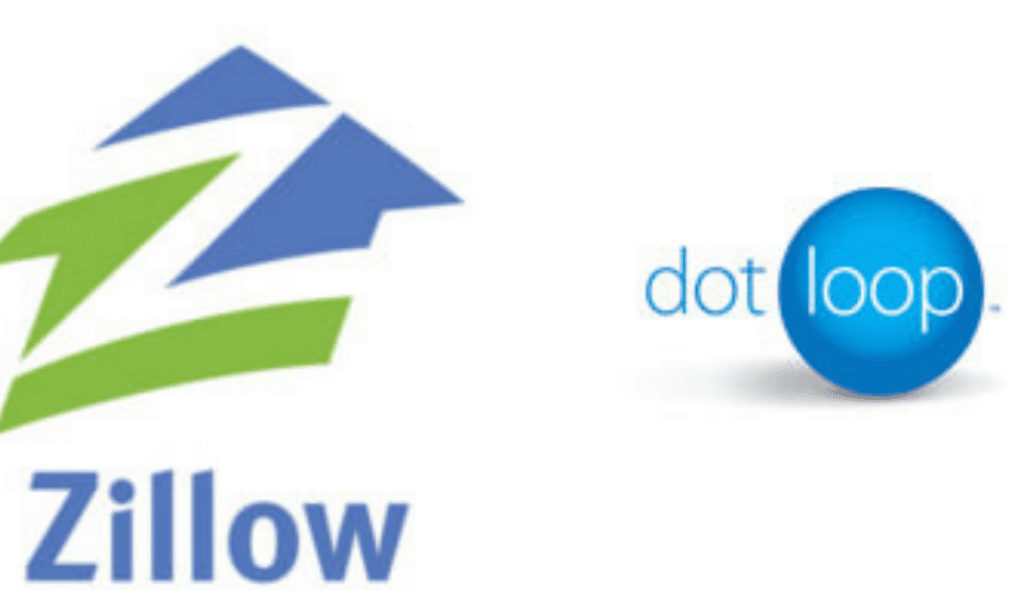From Bricks to Clicks: How Technology and Real Estate Are Redefining the Market with DEAN Knows
The real estate industry, traditionally rooted in physical assets and personal connections, is undergoing a seismic shift. This post, guided by DEAN Knows, explores the profound impact of technology and real estate converging, transforming everything from property search to transaction management. Discover the key innovations, their benefits, and what the future holds for buyers, sellers, investors, and agents in this evolving landscape.
The Digital Revolution in Real Estate: Key Technological Drivers
The digital age has ushered in an era of unprecedented innovation, fundamentally reshaping how we interact with the physical world. In real estate, this revolution is driven by several powerful technological forces.
Artificial Intelligence (AI) & Machine Learning (ML)
AI and ML are no longer concepts of the distant future; they are actively powering smarter, more efficient processes in real estate today.
- Predictive Analytics: Leveraging vast datasets, AI algorithms can analyze historical market trends, economic indicators, and demographic shifts to forecast future property values, identify emerging investment hotspots, and predict optimal selling times. This allows for more strategic decision-making in real estate.
- Personalized Recommendations: AI-powered platforms learn from user behavior, preferences, and search history to deliver highly tailored property suggestions. This means buyers spend less time sifting through irrelevant listings and more time exploring homes that genuinely match their needs.
- Automated Valuations: Algorithms can rapidly process countless data points—from property characteristics and recent sales to neighborhood amenities—to provide accurate and near-instantaneous property appraisals, a crucial aspect of real estate transactions that traditionally took days.
Virtual Reality (VR) & Augmented Reality (AR)
These immersive technologies are breaking down geographical barriers and enhancing the property viewing experience.
- Immersive Property Tours: VR allows potential buyers to virtually walk through homes from anywhere in the world, offering a 360-degree, interactive experience that goes far beyond static photos. This enhances the remote viewing experience and broadens a property’s reach.
- Staging & Renovation Visualization: AR tools enable buyers to envision furniture placement, experiment with different decor styles, or even preview renovation possibilities directly within a physical space or a virtual model before making a purchase decision.
- Remote Site Visits: For commercial real estate or distant investment properties, VR/AR facilitates virtual inspections, allowing investors to assess sites without the need for costly and time-consuming travel.
Blockchain Technology
Often associated with cryptocurrencies, blockchain’s underlying principles of security, transparency, and decentralization hold immense promise for real estate.
- Secure Transactions: By creating an immutable, distributed ledger of ownership, blockchain can enhance transparency and security in property deeds and ownership transfers, significantly reducing fraud and disputes—a true game-changer for real estate.
- Fractional Ownership: Blockchain enables the tokenization of properties, allowing investors to purchase digital “tokens” representing a share of a property. This democratizes real estate investment, making high-value assets accessible to a wider range of investors.
- Smart Contracts: These self-executing contracts, stored on the blockchain, automatically enforce the terms of an agreement when predefined conditions are met. This can automate escrow processes, payment releases, and ownership transfers, reducing legal complexities and costs in real estate.
Internet of Things (IoT) & Smart Home Technology
The proliferation of connected devices is transforming homes into intelligent, responsive environments.
- Connected Living: Integrating smart devices for energy efficiency (thermostats), security (cameras, locks), and convenience (lighting, appliances) creates a more comfortable and appealing living experience, increasing property appeal.
- Data-Driven Property Management: IoT sensors can provide real-time insights into building performance, energy consumption, and maintenance needs, allowing real estate managers to proactively address issues and optimize operational costs.
- Enhanced Property Value: Homes equipped with advanced smart technology often command higher prices and attract tech-savvy buyers in the real estate market, as they offer tangible benefits in terms of comfort, security, and efficiency.
Transforming the Real Estate Journey: Benefits for All Stakeholders
The integration of technology and real estate isn’t just about new gadgets; it’s about creating a more efficient, transparent, and user-friendly experience for everyone involved.
For Buyers & Sellers
The digital revolution has empowered both sides of the transaction.
- Expanded Reach & Access: Buyers gain access to a wider inventory of properties, often including off-market listings, while sellers can reach a global audience through digital platforms, increasing competition and potential sale prices.
- Streamlined Processes: From online mortgage applications and digital document signing to virtual showings, technology accelerates and simplifies many steps, making the journey faster and less stressful. The evolution of online real estate platforms, for example, has significantly streamlined how properties are listed and discovered IDX, the evolution of online real estate.
- Informed Decisions: Access to vast amounts of data, detailed market insights, neighborhood analytics, and immersive virtual tours empowers buyers and sellers to make more confident and informed choices in real estate.
For Real Estate Agents & Brokers
Far from replacing agents, technology is empowering them to be more effective and provide superior service.
- Increased Efficiency: Automation of administrative tasks like scheduling, lead generation, and client communication frees up agents’ time, allowing them to focus on relationship building and strategic advice.
- Enhanced Marketing Tools: Leveraging VR, AI, and data analytics, agents can create more targeted and engaging property promotions, reaching the right buyers with compelling content. For innovative ways to market properties, consider exploring real estate marketing ideas.
- Competitive Advantage: Agents who embrace and master cutting-edge technology can offer superior service, provide deeper insights, and ultimately stand out in a crowded market. Adopting real estate SEO best practices is one way to gain this edge.
For Investors & Developers
Technology offers powerful tools for optimizing investments and development projects.
- Data-Driven Investment Strategies: AI and big data provide deeper insights into market trends, risk assessment, demographic shifts, and optimal development locations, leading to more profitable investment decisions.
- Project Management & Visualization: From BIM (Building Information Modeling) to drone-based site monitoring, technology aids in better planning, construction oversight, and transparent stakeholder communication throughout the development lifecycle.
- New Investment Opportunities: Exploring innovative models like fractional ownership, crowdfunding, and investing in proptech startups opens up diverse avenues for capital deployment.
Navigating the Challenges: Considerations in the Tech-Driven Real Estate Market
While the benefits are clear, the rapid integration of technology also presents new challenges that require careful consideration.
Data Security & Privacy Concerns
The digital nature of modern real estate transactions means handling vast amounts of sensitive information.
- Protecting Sensitive Information: The need for robust cybersecurity measures is paramount to safeguard personal data, financial details, and property records from breaches and cyber threats in real estate transactions.
- Regulatory Compliance: Adhering to evolving data protection laws (like GDPR or CCPA) and industry standards is crucial to maintain trust and avoid legal repercussions.
The Digital Divide & Accessibility
Not everyone has equal access to or proficiency with new technologies.
- Ensuring Inclusivity: Addressing disparities in access to technology and digital literacy among different demographics is important to ensure that the benefits of innovation are available to all potential buyers and sellers.
- Maintaining Human Connection: While automation streamlines processes, the essential personal touch and expert guidance remain vital in real estate dealings, especially for complex transactions or first-time buyers.
Rapid Technological Evolution
The pace of change can be daunting.
- Staying Current: The constant need for professionals and consumers to adapt to new tools, platforms, and software updates requires ongoing learning and flexibility.
- Integration Complexities: Challenges can arise in integrating disparate technology solutions within existing real estate workflows and legacy systems, requiring careful planning and investment.
The Future of Real Estate: What’s Next with DEAN Knows
The journey of technology and real estate is far from over. DEAN Knows anticipates an even more integrated and intelligent future.
Hyper-Personalization & Predictive Experiences
- Anticipating Needs: Technology will increasingly move beyond reactive responses to proactively predict buyer/seller needs, offering highly customized services and property matches before they’re even explicitly sought. Imagine AI suggesting a new home based on lifestyle changes it detects.
- Proactive Market Insights: DEAN Knows anticipates a future where market shifts, emerging trends, and investment opportunities are identified and acted upon almost instantaneously, giving stakeholders a significant advantage.
Sustainable & Smart Cities Integration
- Eco-Friendly Development: Technology will continue to drive greener building practices, energy-efficient designs, and the use of sustainable materials, leading to more environmentally responsible real estate.
- Urban Planning: The integration of smart city infrastructure—from intelligent traffic management to integrated utility systems—will profoundly influence real estate development, creating more livable and efficient urban environments.
The Evolving Role of the Real Estate Professional
The human element remains indispensable, but the role will evolve.
- Strategic Advisors: Agents will transition from purely transactional roles to becoming expert consultants, leveraging technology for deeper insights, market analysis, and personalized client strategies.
- Lifelong Learning: Continuous upskilling in proptech, data analytics, and digital marketing will be crucial for success in the modern real estate landscape. For those looking to enhance their expertise, exploring educational approaches for real estate brokers and agents is a great starting point.
Conclusion
The fusion of technology and real estate is not just a trend; it’s a fundamental transformation reshaping how we buy, sell, and manage properties. From AI-driven insights to immersive VR tours, the future of real estate is dynamic, efficient, and more accessible than ever. Staying informed and adapting to these changes is key to thriving in this new landscape. Stay ahead of the curve and understand these shifts with the expert guidance of DEAN Knows, your trusted partner in navigating the evolving real estate market.




